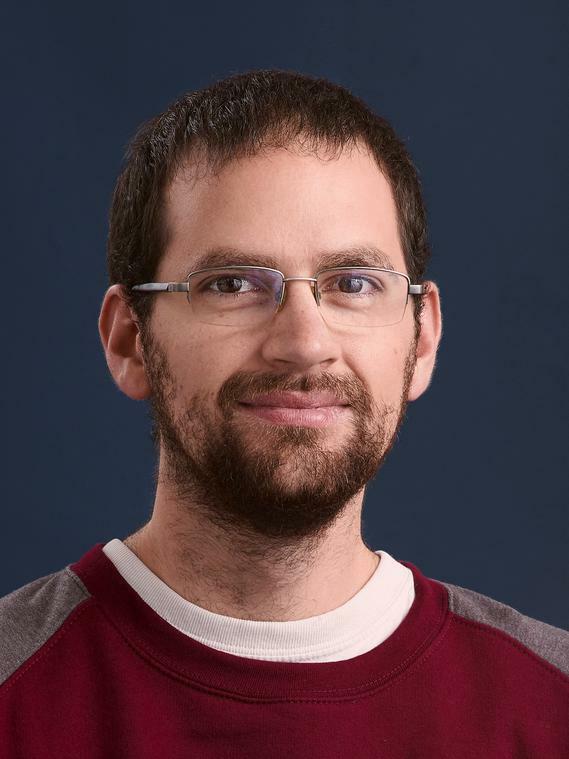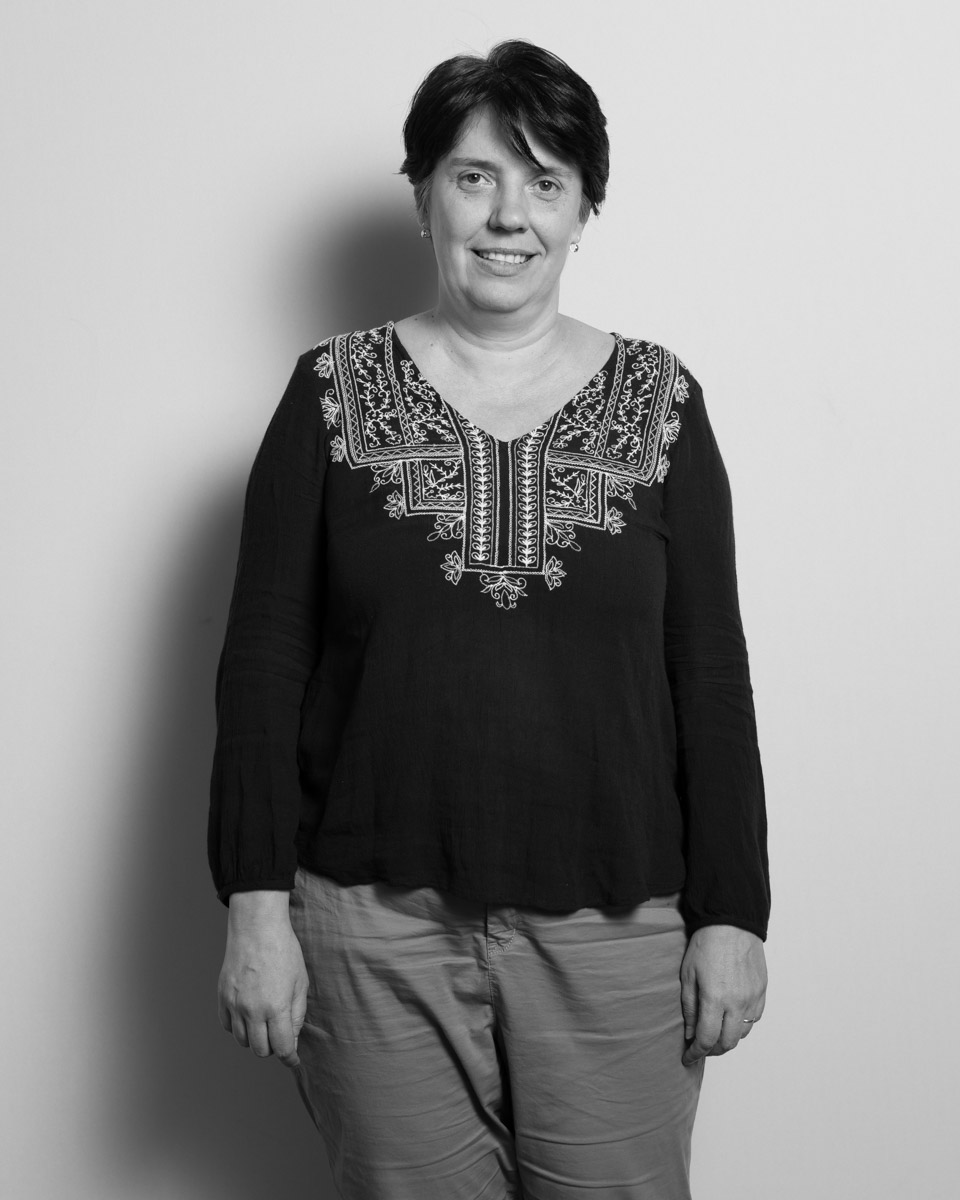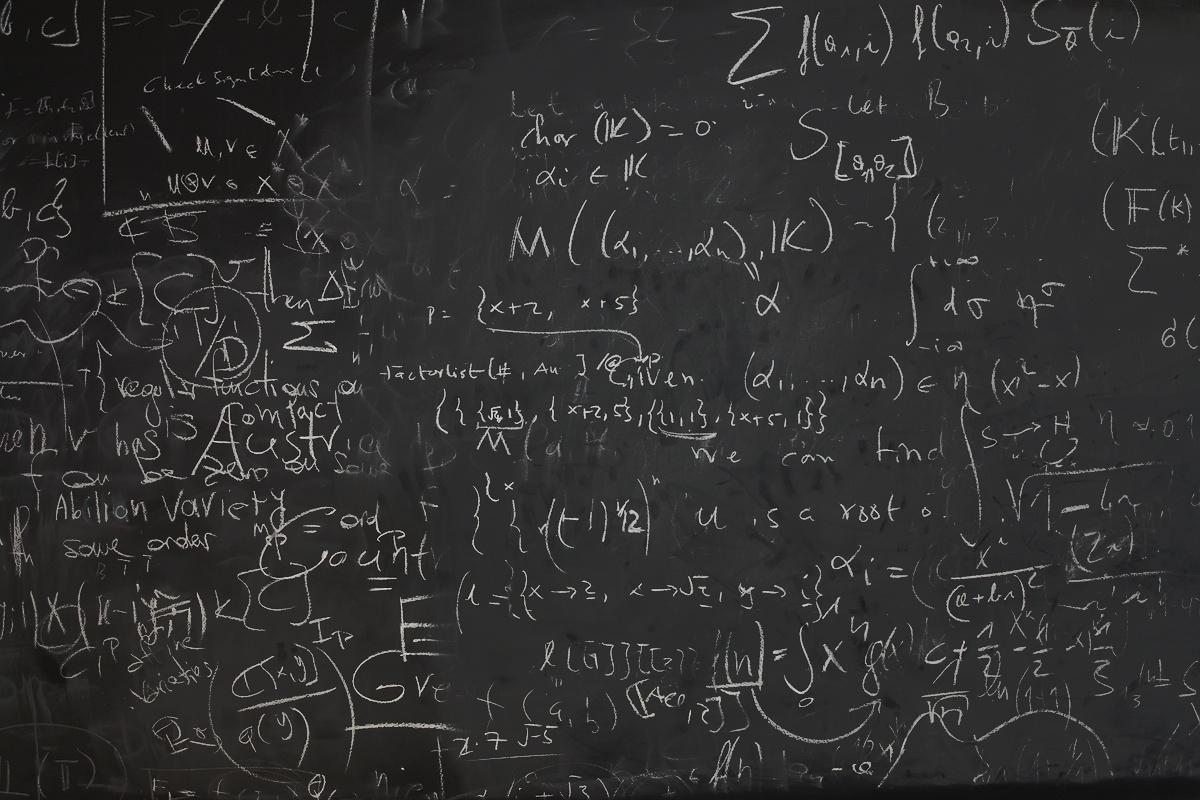Members

Bruno Buchberger: Founding Chairman 1987-1998

Michal Buran

David Cerna
Georg Ehling

Teimuraz Kutsia

Ioana-Cleopatra Pau

Ongoing Projects
Symbolic Techniques for Quantitative Extensions of Equality [SQUEE]
Software
PρLog (pronounced Pē-rō-log) is an experimental tool that extends logic programming with strategic conditional transformation rules, combining Prolog with ρLog calculus. It deals with term sequences (also called hedges), transforming them by conditional rules. Transformations are nondeterministic and may yield ...
This library contains unification, matching, and anti-unification algorithms in various theories developed at RISC. Unification with sequence variables. Context sequence matching. Rigid anti-unification for unranked terms and hedges and its experimental extension with commutative symbols. Unranked second-order anti-unification and its ...
Publications
2025
Higher-Order Pattern Unification Modulo Similarity Relations
Besik Dundua, Temur Kutsia
Technical report no. 25-03 in RISC Report Series, Research Institute for Symbolic Computation (RISC), Johannes Kepler University Linz, Austria. ISSN 2791-4267 (online). February 2025. Licensed under CC BY 4.0 International. [doi] [pdf]author = {Besik Dundua and Temur Kutsia},
title = {{Higher-Order Pattern Unification Modulo Similarity Relations}},
language = {english},
abstract = {The combination of higher-order theories and fuzzy logic can be useful in decision-making tasks that involve reasoning across abstract functions and predicates, where exact matches are often rare or unnecessary. Developing efficient reasoning and computational techniques for such a combined formalism presents a significant challenge. In this paper, we adopt a more straightforward approach aiming at integrating two well-established and computationally well-behaving components: higher-order patterns on one side and fuzzy equivalences expressed through similarity relations based on minimum T-norm on the other. We propose a unification algorithm for higher-order patterns modulo these similarity relations and prove its termination, soundness, and completeness. This unification problem, like its crisp counterpart, is unitary. The algorithm computes the most general unifier with the highest degree of approximation when the given terms are unifiable.},
number = {25-03},
year = {2025},
month = {February},
keywords = {Unification, higher-order patterns, fuzzy similarity relations},
length = {20},
license = {CC BY 4.0 International},
type = {RISC Report Series},
institution = {Research Institute for Symbolic Computation (RISC), Johannes Kepler University Linz},
address = {Altenberger Straße 69, 4040 Linz, Austria},
issn = {2791-4267 (online)}
}
2024
Proximity-based matching with arbitrary T-norms
Maximilian Donnermair
RISC, Johannes Kepler University Linz. Bachelor Thesis. 2024. [pdf]author = {Maximilian Donnermair},
title = {{Proximity-based matching with arbitrary T-norms}},
language = {english},
year = {2024},
translation = {0},
institution = {RISC, Johannes Kepler University Linz},
length = {38}
}
Science and Meditation: Creating the Future (English Translation of "Wissenschaft und Meditation")
Bruno Buchberger
1st edition, 2024. Amazon, 979-8332230837.author = {Bruno Buchberger},
title = {{Science and Meditation: Creating the Future (English Translation of "Wissenschaft und Meditation")}},
language = {english},
publisher = {Amazon},
isbn_issn = { 979-8332230837},
year = {2024},
edition = {1st},
translation = {0},
length = {153}
}
Equational Anti-unification over Absorption Theories
Mauricio Ayala-Rincón, David M. Cerna, Andres Felipe Gonzalez Barragan, Temur Kutsia
In: Automated Reasoning - 12th International Joint Conference, IJCAR 2024, Nancy, France, July 3-6, 2024, Proceedings, Christoph Benzmüller, Marijn J. H. Heule, Renate A. Schmidt (ed.), Lecture Notes in Artificial Intelligence 14740, pp. 317-337. 2024. Springer, ISBN 978-3-031-63500-7. [doi]author = {Mauricio Ayala-Rincón and David M. Cerna and Andres Felipe Gonzalez Barragan and Temur Kutsia},
title = {{Equational Anti-unification over Absorption Theories}},
booktitle = {{Automated Reasoning - 12th International Joint Conference, IJCAR 2024, Nancy, France, July 3-6, 2024, Proceedings}},
language = {english},
series = {Lecture Notes in Artificial Intelligence},
volume = {14740},
pages = {317--337},
publisher = {Springer},
isbn_issn = {ISBN 978-3-031-63500-7},
year = {2024},
editor = {Christoph Benzmüller and Marijn J. H. Heule and Renate A. Schmidt},
refereed = {yes},
length = {21},
url = {https://doi.org/10.1007/978-3-031-63501-4_17}
}
Certification of Tail Recursive Bubble-Sort in Theorema and Coq
I. Dramnesc, T. Jebelean, S. Stratulat
In: LPAR 2024 Complementary Volume, N. Bjørner, M. Heule, A. Voronkov (ed.), Kalpa Publications in Computing 18, pp. 53-68. 2024. EasyChair, ISSN 2515-1762. [url]author = {I. Dramnesc and T. Jebelean and S. Stratulat},
title = {{Certification of Tail Recursive Bubble-Sort in Theorema and Coq}},
booktitle = {{LPAR 2024 Complementary Volume}},
language = {English},
series = {Kalpa Publications in Computing},
volume = {18},
pages = {53--68},
publisher = {EasyChair},
isbn_issn = { ISSN 2515-1762},
year = {2024},
editor = {N. Bjørner and M. Heule and A. Voronkov},
refereed = {yes},
length = {16},
url = {/publications/paper/tbwq}
}
Certification of Sorting Algorithms Using Theorema and Coq
I. Dramnesc, T. Jebelean, S. Stratulat
In: SCSS 2024, Symbolic Computation in Software Science , S. M. Watt, T. Ida (ed.), Lecture Notes in Artificial Intelligence 14991, pp. 38-56. 2024. Springer, ISBN 978-3-031-69041-9.author = {I. Dramnesc and T. Jebelean and S. Stratulat},
title = {{Certification of Sorting Algorithms Using Theorema and Coq}},
booktitle = {{SCSS 2024, Symbolic Computation in Software Science }},
language = {English},
series = {Lecture Notes in Artificial Intelligence},
volume = {14991},
pages = {38--56},
publisher = {Springer},
isbn_issn = {ISBN 978-3-031-69041-9},
year = {2024},
editor = {S. M. Watt and T. Ida},
refereed = {yes},
length = {19}
}
Solving Quantitative Equations
G. Ehling, T. Kutsia
Technical report no. 24-03 in RISC Report Series, Research Institute for Symbolic Computation (RISC), Johannes Kepler University Linz, Austria. ISSN 2791-4267 (online). April 2024. Licensed under CC BY 4.0 International. [doi] [pdf]author = {G. Ehling and T. Kutsia},
title = {{Solving Quantitative Equations}},
language = {english},
abstract = {Quantitative equational reasoning provides a framework that extends equality to an abstract notion of proximity by endowing equations with an element of a quantale. In this paper, we discuss the unification problem for a special class of shallow subterm-collapse-free quantitative equational theories. We outline rule-based algorithms for solving such equational unification problems over generic as well as idempotent Lawvereian quantales and study their properties.},
number = {24-03},
year = {2024},
month = {April},
keywords = {quantitative equational reasoning, Lawvereian quantales, equational unification},
length = {23},
license = {CC BY 4.0 International},
type = {RISC Report Series},
institution = {Research Institute for Symbolic Computation (RISC), Johannes Kepler University Linz},
address = {Altenberger Straße 69, 4040 Linz, Austria},
issn = {2791-4267 (online)}
}
Solving Quantitative Equations
Georg Ehling, Temur Kutsia
In: Automated Reasoning - 12th International Joint Conference, IJCAR 2024, Nancy, France, July 3-6, 2024, Proceedings, Christoph Benzmüller, Marijn J. H. Heule, Renate A. Schmidt (ed.), Lecture Notes in Artificial Intelligence 14740, pp. 381-400. 2024. Springer, ISBN 978-3-031-63500-7. [doi]author = {Georg Ehling and Temur Kutsia},
title = {{Solving Quantitative Equations}},
booktitle = {{Automated Reasoning - 12th International Joint Conference, IJCAR 2024, Nancy, France, July 3-6, 2024, Proceedings}},
language = {english},
series = {Lecture Notes in Artificial Intelligence},
volume = {14740},
pages = {381--400},
publisher = {Springer},
isbn_issn = {ISBN 978-3-031-63500-7},
year = {2024},
editor = {Christoph Benzmüller and Marijn J. H. Heule and Renate A. Schmidt},
refereed = {yes},
length = {20},
url = {https://doi.org/10.1007/978-3-031-63501-4_20}
}
Certified First-Order AC-Unification and Applications
Mauricio Ayala-Rincón, Maribel Fernández, Gabriel Ferreira Silva, Temur Kutsia, Daniele Nantes-Sobrinho
Journal of Automated Reasoning 68(4), pp. 25:1-25:48. 2024. ISSN 0168-7433. [doi] [pdf]author = {Mauricio Ayala-Rincón and Maribel Fernández and Gabriel Ferreira Silva and Temur Kutsia and Daniele Nantes-Sobrinho},
title = {{Certified First-Order AC-Unification and Applications}},
language = {english},
journal = {Journal of Automated Reasoning},
volume = {68},
number = {4},
pages = {25:1--25:48},
isbn_issn = {ISSN 0168-7433},
year = {2024},
refereed = {yes},
length = {0},
url = {https://doi.org/10.1007/s10817-024-09714-5}
}
2023
Automated Programming, Symbolic computation, Machine Learning: My Personal View
Bruno Buchberger
Ann. Math. Artif. Intell. 91(5), pp. 569-589. 2023. 1012-2443.author = {Bruno Buchberger},
title = {{Automated Programming, Symbolic computation, Machine Learning: My Personal View}},
language = {english},
journal = {Ann. Math. Artif. Intell.},
volume = {91},
number = {5},
pages = {569--589},
isbn_issn = {1012-2443},
year = {2023},
refereed = {yes},
length = {21}
}
International Young Talents Hotspot Austria
Bruno Buchberger
In: Ideen, die gehen!, W. Schüssel, G. Kneifel (ed.), pp. 37-39. 2023. Edition Kleine Zeitung, 20234.author = {Bruno Buchberger},
title = {{International Young Talents Hotspot Austria}},
booktitle = {{Ideen, die gehen!}},
language = {english},
pages = {37--39},
publisher = {Edition Kleine Zeitung},
isbn_issn = {20234},
year = {2023},
editor = {W. Schüssel and G. Kneifel},
refereed = {no},
length = {3}
}
Wissenschaft und Meditation: Auf dem Weg zur bewussten Naturgesellschaft
Bruno Buchberger
1st edition, December 2023. Amazon, 979-8868299117.author = {Bruno Buchberger},
title = {{Wissenschaft und Meditation: Auf dem Weg zur bewussten Naturgesellschaft}},
language = {german},
publisher = {Amazon},
isbn_issn = {979-8868299117},
year = {2023},
month = {December},
edition = {1st},
translation = {0},
length = {184}
}
Anti-unification and Generalization: a Survey
David Cerna, Temur Kutsia
In: Proceedings of IJCAI 2023 - 32nd International Joint Conference on Artifical Intelligence, Edith Elkind (ed.), pp. 6563-6573. 2023. ijcai.org, ISBN 978-1-956792-03-4 . [doi]author = {David Cerna and Temur Kutsia},
title = {{Anti-unification and Generalization: a Survey}},
booktitle = {{Proceedings of IJCAI 2023 - 32nd International Joint Conference on Artifical Intelligence}},
language = {english},
pages = {6563--6573},
publisher = {ijcai.org},
isbn_issn = {ISBN 978-1-956792-03-4 },
year = {2023},
editor = {Edith Elkind},
refereed = {yes},
length = {11},
url = {https://doi.org/10.24963/ijcai.2023/736}
}
Equational Anti-Unification over Absorption Theories
Mauricio Ayala-Rincón, David M. Cerna, Andres Felipe Gonzalez Barragan, Temur Kutsia
arXiv:2310.11136. Technical report, 2023. [doi]author = {Mauricio Ayala-Rincón and David M. Cerna and Andres Felipe Gonzalez Barragan and Temur Kutsia},
title = {{Equational Anti-Unification over Absorption Theories}},
language = {english},
year = {2023},
institution = {arXiv:2310.11136},
length = {23},
url = {https://doi.org/10.48550/arXiv.2310.11136}
}
Matching in Quantitative Equational Theories
Georg Ehling, Temur Kutsia
In: UNIF 2023 - 37th International Workshop on Unification, Veena Ravishankar and Christophe Ringeissen (ed.), pp. -. 2023. [url]author = {Georg Ehling and Temur Kutsia},
title = {{Matching in Quantitative Equational Theories}},
booktitle = {{UNIF 2023 - 37th International Workshop on Unification}},
language = {english},
pages = {--},
isbn_issn = { },
year = {2023},
editor = {Veena Ravishankar and Christophe Ringeissen},
refereed = {yes},
sponsor = {FWF},
length = {7},
url = {https://inria.hal.science/hal-04128216}
}
Nominal AC-Matching
Mauricio Ayala-Rincón, Maribel Fernández, Gabriel Ferreira Silva, Temur Kutsia, and Daniele Nantes-Sobrinho
In: Proceedings of the 16th International Conference on Intelligent Computer Mathematics, CICM 2023, Catherine Dubois and Manfred Kerber (ed.), Lecture Notes in Aritificial Intelligence 14101, pp. 53-68. 2023. Springer, ISBN 978-3-031-42752-7. [doi]author = {Mauricio Ayala-Rincón and Maribel Fernández and Gabriel Ferreira Silva and Temur Kutsia and and Daniele Nantes-Sobrinho},
title = {{Nominal AC-Matching}},
booktitle = {{Proceedings of the 16th International Conference on Intelligent Computer Mathematics, CICM 2023}},
language = {english},
series = {Lecture Notes in Aritificial Intelligence},
volume = {14101},
pages = {53--68},
publisher = {Springer},
isbn_issn = {ISBN 978-3-031-42752-7},
year = {2023},
editor = {Catherine Dubois and Manfred Kerber},
refereed = {yes},
length = {16},
url = {https://doi.org/10.1007/978-3-031-42753-4_4}
}
Enumerating All Maximal Clique-Partitions of an Undirected Graph
Mircea Marin, Temur Kutsia, Cleo Pau, Mikheil Rukhaia
In: Proceedings 7th Symposium on Working Formal Methods, FROM 2023, Horatiu Cheval, Laurentiu Leustean, and Andrei Sipos (ed.), pp. 65-79. 2023. [doi]author = {Mircea Marin and Temur Kutsia and Cleo Pau and Mikheil Rukhaia},
title = {{Enumerating All Maximal Clique-Partitions of an Undirected Graph}},
booktitle = {{Proceedings 7th Symposium on Working Formal Methods, FROM 2023}},
language = {english},
pages = {65--79},
isbn_issn = { },
year = {2023},
editor = {Horatiu Cheval and Laurentiu Leustean and and Andrei Sipos},
refereed = {yes},
length = {15},
url = {https://doi.org/10.4204/EPTCS.389.6}
}
2022
Unranked Nominal Unification
Besik Dundua, Temur Kutsia, Mikheil Rukhaia
In: Proceedings of TbiLLC 2019 - 13th International Tbilisi Symposium on Logic, Language, and Computation, Aybüke Özgün and Yulia Zinova (ed.), Proceedings of 13th International Tbilisi Symposium on Logic, Language, and Computation, Lecture Notes in Computer Science 13206, pp. 279-296. 2022. Springer, ISBN 978-3-030-98478-6. [doi] [pdf]author = {Besik Dundua and Temur Kutsia and Mikheil Rukhaia},
title = {{Unranked Nominal Unification}},
booktitle = {{Proceedings of TbiLLC 2019 - 13th International Tbilisi Symposium on Logic, Language, and Computation}},
language = {english},
series = {Lecture Notes in Computer Science},
volume = {13206},
pages = {279--296},
publisher = {Springer},
isbn_issn = {ISBN 978-3-030-98478-6},
year = {2022},
editor = {Aybüke Özgün and Yulia Zinova},
refereed = {yes},
length = {17},
conferencename = {13th International Tbilisi Symposium on Logic, Language, and Computation},
url = {https://doi.org/10.1007/978-3-030-98479-3_14}
}
Nominal Unification and Matching of Higher Order Expressions with Recursive Let
Manfred Schmidt-Schauß, Temur Kutsia, Jordi Levy, Mateu Villaret, Yunus Kutz
Fundamenta Informaticae 185(3), pp. 247-283. 2022. IOS Press, ISSN 1875-8681. [url]author = {Manfred Schmidt-Schauß and Temur Kutsia and Jordi Levy and Mateu Villaret and Yunus Kutz},
title = {{Nominal Unification and Matching of Higher Order Expressions with Recursive Let}},
language = {english},
journal = {Fundamenta Informaticae},
volume = {185},
number = {3},
pages = {247--283},
publisher = {IOS Press},
isbn_issn = {ISSN 1875-8681},
year = {2022},
refereed = {yes},
length = {37},
url = {https://arxiv.org/abs/2102.08146v4}
}
Work-in-progress papers presented at the 15th Conference on Intelligent Computer Mathematics, CICM 2022 (Informal Proceedings)
Kevin Buzzard and Temur Kutsia
, 2022. [url] [pdf]author = {Kevin Buzzard and Temur Kutsia},
title = {{Work-in-progress papers presented at the 15th Conference on Intelligent Computer Mathematics, CICM 2022 (Informal Proceedings)}},
language = {english},
year = {2022},
institution = { },
length = {77},
url = {https://cicm-conference.org/2022/cicm.php}
}



